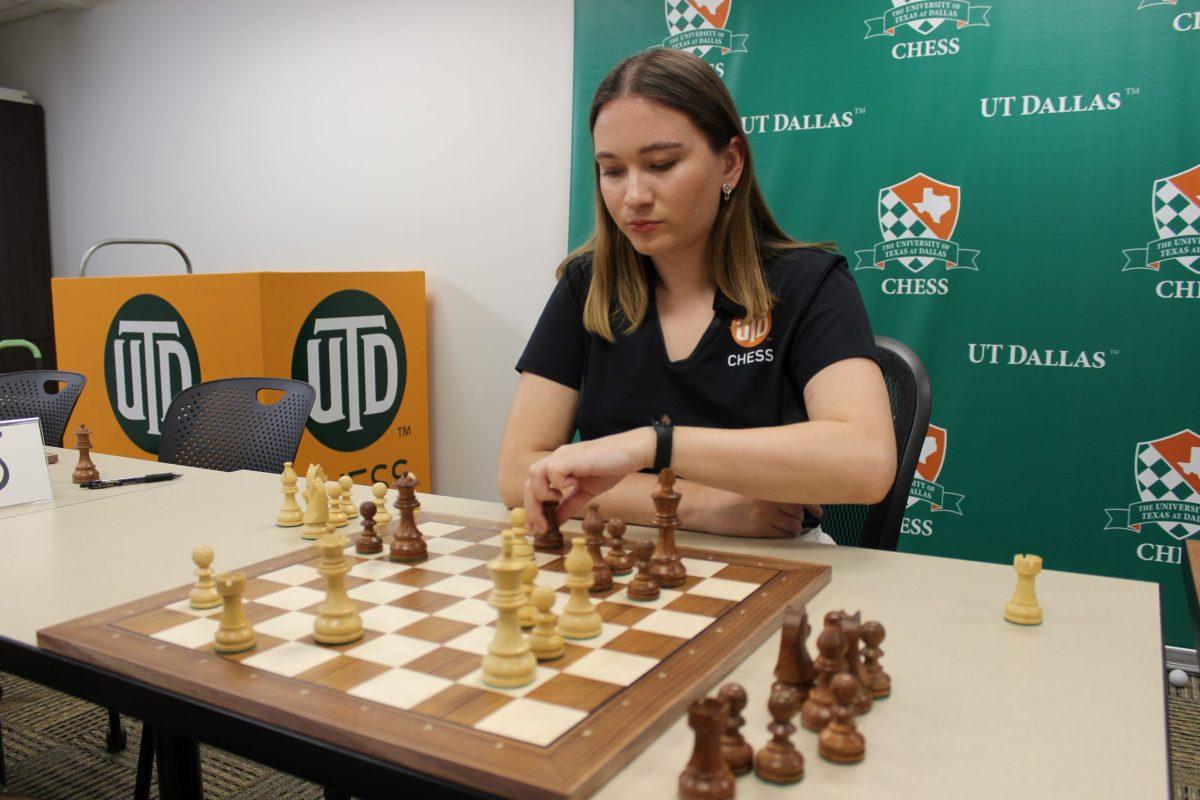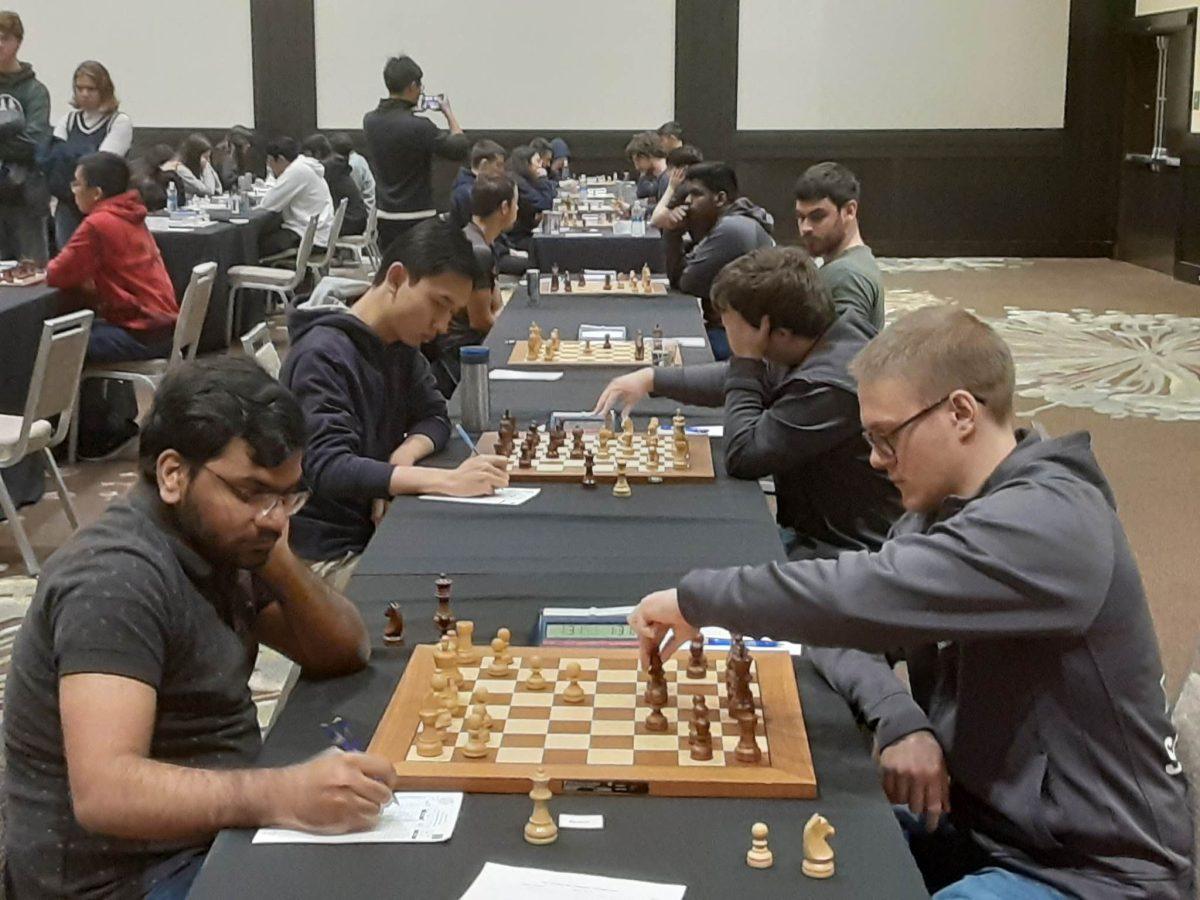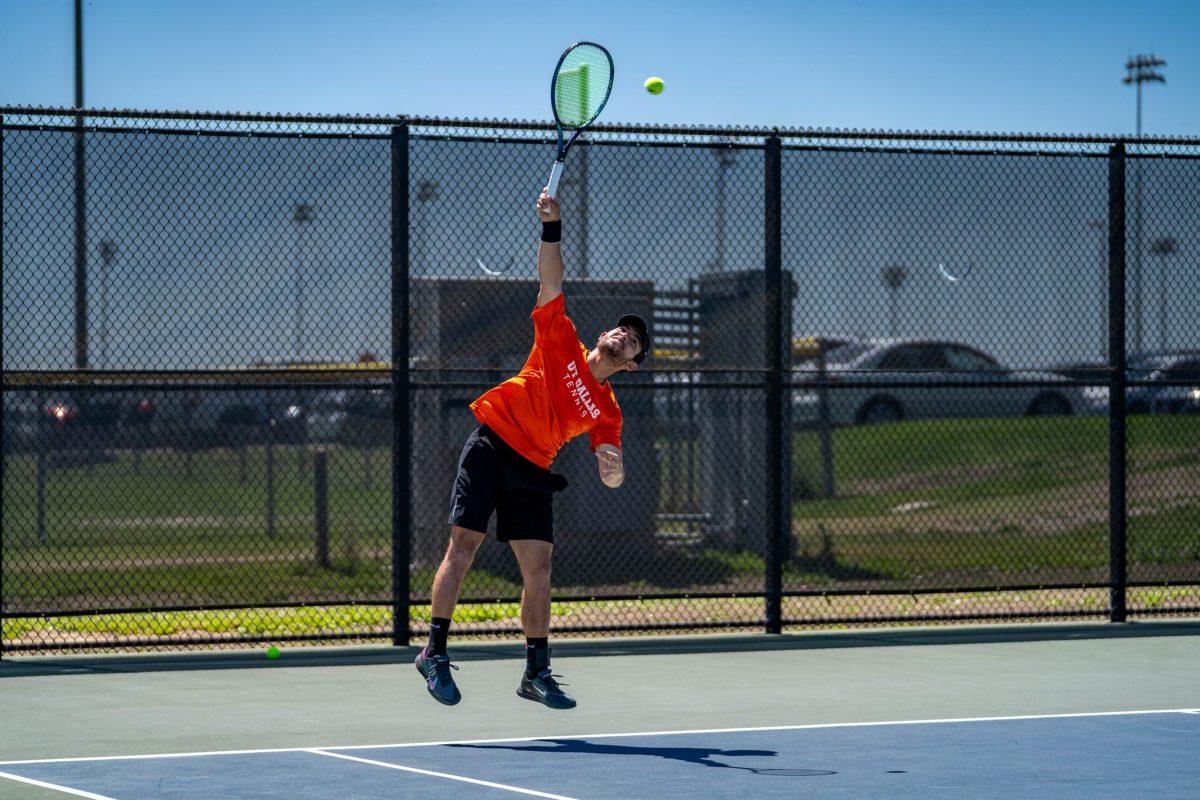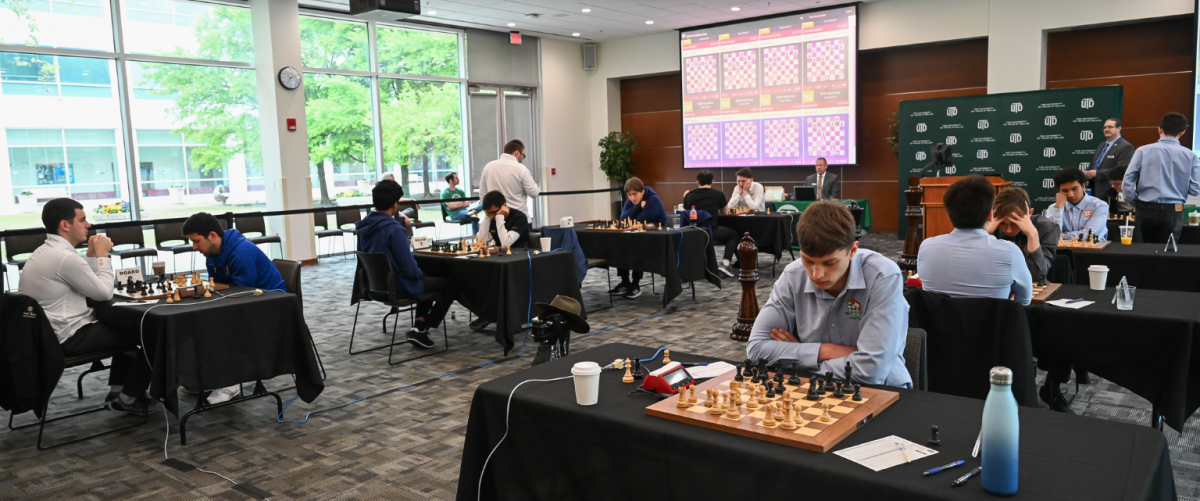From an early age, economics freshman Anastasia Paramzina said chess fascinated her — and she knew she needed to win. Paramzina, now a highly competitive Woman Grandmaster (WGM), is continuing her chess career as the newest member of the UTD chess team.
Paramzina is a Russian chess player with a FIDE rating of 2183 and a U.S. Chess Foundation (USCF) rating of 2274; she received the title of WGM in 2017. When she was six years old, Paramzina won a Moscow championship for girls under the age of 8 and went on to represent Russia in different age groups at European Youth and World Youth chess championships. Paramzina said she is a dynamic player, using strong attacks against her opponents; she said that as an aggressive player, she particularly enjoys using the Najdorf and Grunfeld openings. When preparing for a tournament, Paramzina said she becomes more reserved and gets in the zone.
“I talk less to people, especially before the games,” Paramzina said. “I’m more focused, more thinking, just not even thinking about the result, but about the way I feel.”
Chess team coach and Grandmaster Julio Sadorra said that Paramzina’s lengthy career as a chess player makes her a powerful addition to the team.
“You can’t talk to her after the game because she gets really emotional and when you see players like that, you can’t talk to them, they take it seriously,” Sadorra said. “In tournaments, after losing or whatever the result is, she’ll finish the event. She’s a strong fighter.”
Growing up, Paramzina was a curious child and tried out hobbies like figure skating, but she said she soon realized she was not good at it and decided to focus on chess.
“Since childhood I was very competitive and enjoyed games,” Paramzina said. “I liked to solve different puzzles as well. In chess you can find both of those. I like patterns and the process of creating and finding something new.”
Paramzina said she was discouraged when she first started the game due to losses in her chess lessons, but her parents pushed her to do her best, and she was driven to win.
“I really don’t know how my parents convinced me to go [to chess lessons] again, because I was very stubborn,” Paramzina said. “But I am glad that they did. I played in my first world championship when I was nine. In my last round, it was enough to make a draw to get a medal, but I lost. I cried a lot.”
Even though she was cementing herself as an exceptional player, other players doubted her ability, namely male players. Although this used to bother Paramzina when she was younger, she learned to brush off sexism.
“[A] man just always looks at you like you’re a woman,” Paramzina said. “Against each other, they’re just playing chess, but [if] you’re a woman, they’re more offended if they [lose] to you.”
Sadorra and director of the chess team, James “Jim” Stallings, mention that their players are passionate and have a desire to do better. Although there are those who say that chess is just a game, chess is Paramzina’s pride.
“I don’t feel that I’ve done my best in chess, so I would like to win more titles and raise my rating,” Paramzina said.
Chess may be an intimidating game, but Paramzina reassures those who want to try it that success is all about practice and perseverance.
“I have a feeling that they think that people like Grandmasters know how to play just perfectly or know how to make the best move every time, but mostly, we all are just trying our best,” Paramzina said.







